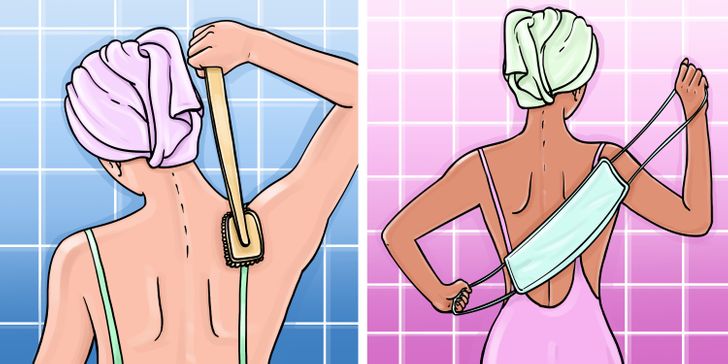
Personal hygiene is a seemingly easy task. Keeping yourself clean is important for your health, your image, and even your self-esteem. But what if we’re cleaning ourselves all wrong? As long as you’re at least attempting to clean yourself, you’re probably doing an okay job. But if you want to get cleaner, feel better, and improve health outcomes, you can do better.
Hygiene and Health
Hopefully, you already intuitively understand the importance of personal hygiene, cleanliness, and health. But let’s make the point even more prominent and clear. Correcting your personal cleaning mistakes and improving your hygiene can benefit you in many ways:
- Physical health. Maintaining better hygiene means you’ll be at lower risk for specific health conditions and infections. As a simple example, if you wash your hands properly and more often, you’ll be at lower risk of catching contagious diseases like the common cold.
- Personal comfort. Better health also leads to higher levels of personal comfort. Even if you don’t feel especially dirty, poor hygienic practices can leave you feeling itchy, irritable, or otherwise “off.”
- Social dynamics. Practicing good hygiene isn’t just about your personal feelings or actions; it’s also about the people around you. If you don’t clean yourself properly and frequently, you could end up putting other people off or damaging your own reputation.
- Confidence and self-esteem. Cleaner personal practices can also give you greater confidence and self-esteem. It’s one of a number of positive health practices that can leave you feeling better about yourself.
Personal Hygiene: What You’re Doing Wrong
These are some of the most common mistakes people make when it comes to personal hygiene:
- Using traditional toilet paper. If you’re like most people in the United States, you probably wipe yourself with toilet paper after using the bathroom. This is an accepted practice, but it’s not an efficient or thorough one when it comes to cleanliness. Instead, it’s better to use a bidet. A bidet will provide you with a spray of water designed to clean your underside in a gentle, yet thorough way. Just as washing your hands is better than wiping them off with a napkin, washing your underside is better than wiping it with toilet paper. It’s also less abrasive, more cost efficient, and better for the environment.
- Changing your sheets rarely. How often do you change your sheets? If you’re practicing good hygiene, you should change them at least once a week – and possibly even more frequently. If you go longer than a week without changing them, they can build up with bacteria, dead skin cells, and even tiny parasites. While you’re at it, make sure to change and wash your towels regularly as well.
- Flossing infrequently. Brushing your teeth is arguably the most important oral health habit you can have; brushing your teeth twice a day is one of the best ways to prevent cavities and bad breath. But there are millions of people who brush their teeth twice a day, while still only flossing on an occasional basis. If you want to improve your oral health and reduce the possibility of cavities, abscesses, and other complications, you should floss every day.
- Washing your hands incorrectly. It may not seem like washing your hands is complex is challenging, but the proper methodology is easy to neglect. For starters, you should always use soap. You should wet your hands with water, apply the soap, scrub vigorously for at least 20 seconds, and make sure every little surface of your hands is covered. It’s also important for you to rinse thoroughly with water when you’re done.
- Washing your hair every day. While overbathing can be a problem, most people are comfortable showering or bathing every day. This is certainly acceptable, but most people shouldn’t wash their hair with shampoo every day. Your body produces natural oils designed to keep your hair healthy, and shampooing has a tendency to remove those oils. There are benefits to washing your hair, so it’s important to find a balance. Consider washing your hair only a few times each week.
- Using the wrong products. There are thousands of hygiene products available at your local supermarket, but not all of them are good for your skin or personal health. Products with harsh chemicals can dry your skin, cause a reaction, or even interfere with the natural pH balance of your body. Read labels carefully.
- Walking barefoot in the wrong areas. Some floors, even those in your own house’s bathroom, are disgusting. Wear slippers, socks, or flip-flops to protect yourself – especially after you just got clean in the shower.
- Cleaning your ears with cotton swabs. It was once a common practice for people to clean their ears out with cotton swabs daily. Today, medical experts advise against it. Your ears naturally clean themselves, so cotton swabs are an unnecessary risk.
- Chewing your nails. It’s hard to stop biting your nails when it’s a fully ingrained habit, especially if it’s your primary method for keeping your fingernails trimmed. Instead, it’s better to use traditional nail clippers periodically. Consider finding a substitute activity as you gradually wean yourself off this orally fixated habit.
Whether you’re interested in better health outcomes or just increased personal comfort, correcting these hygiene mistakes can leave you feeling better. Health is a complex topic that’s evolving all the time, so stay on the lookout for new developments about the role of personal hygiene.











